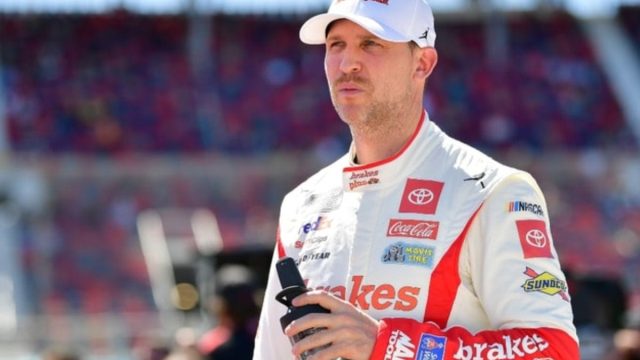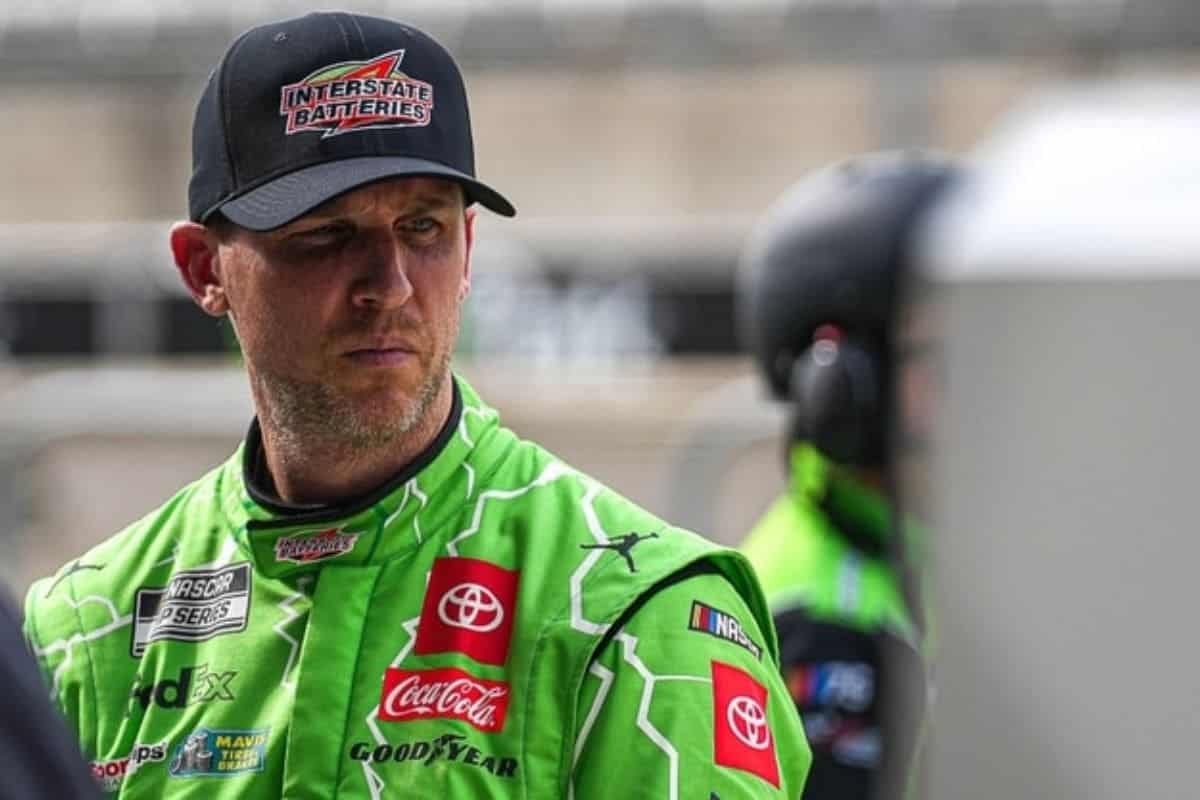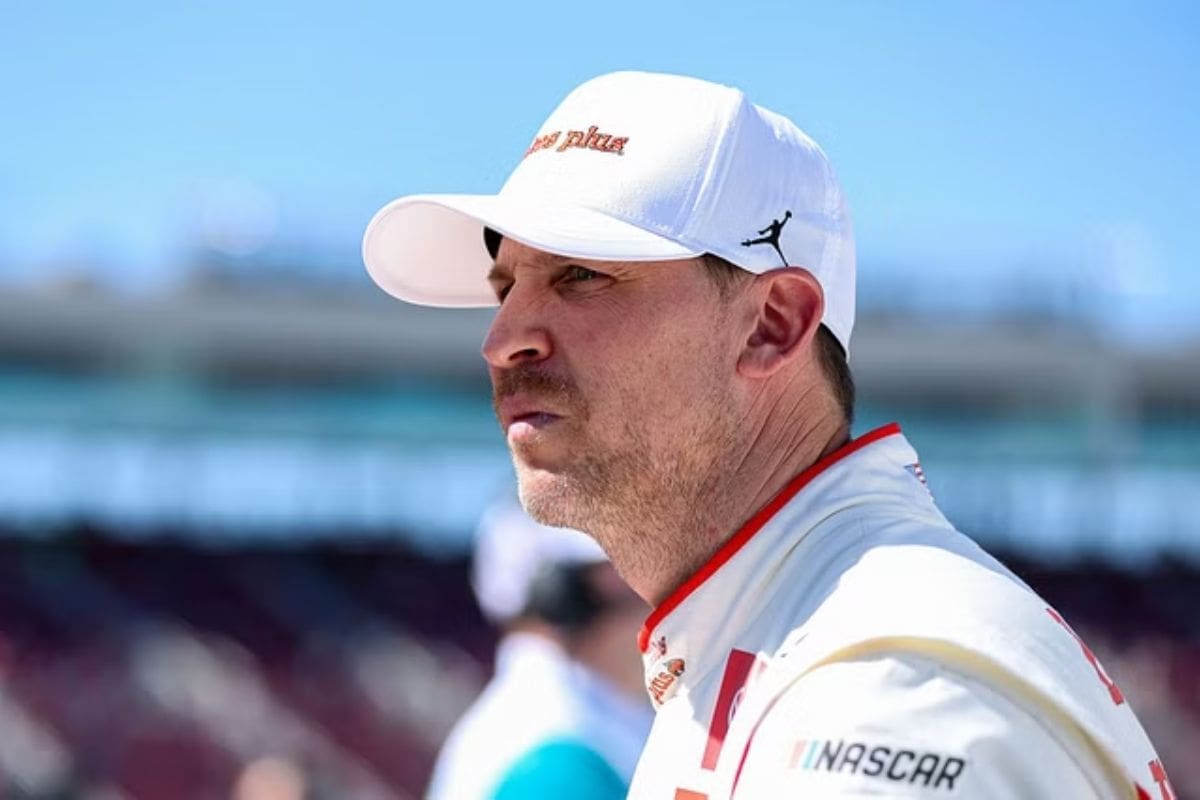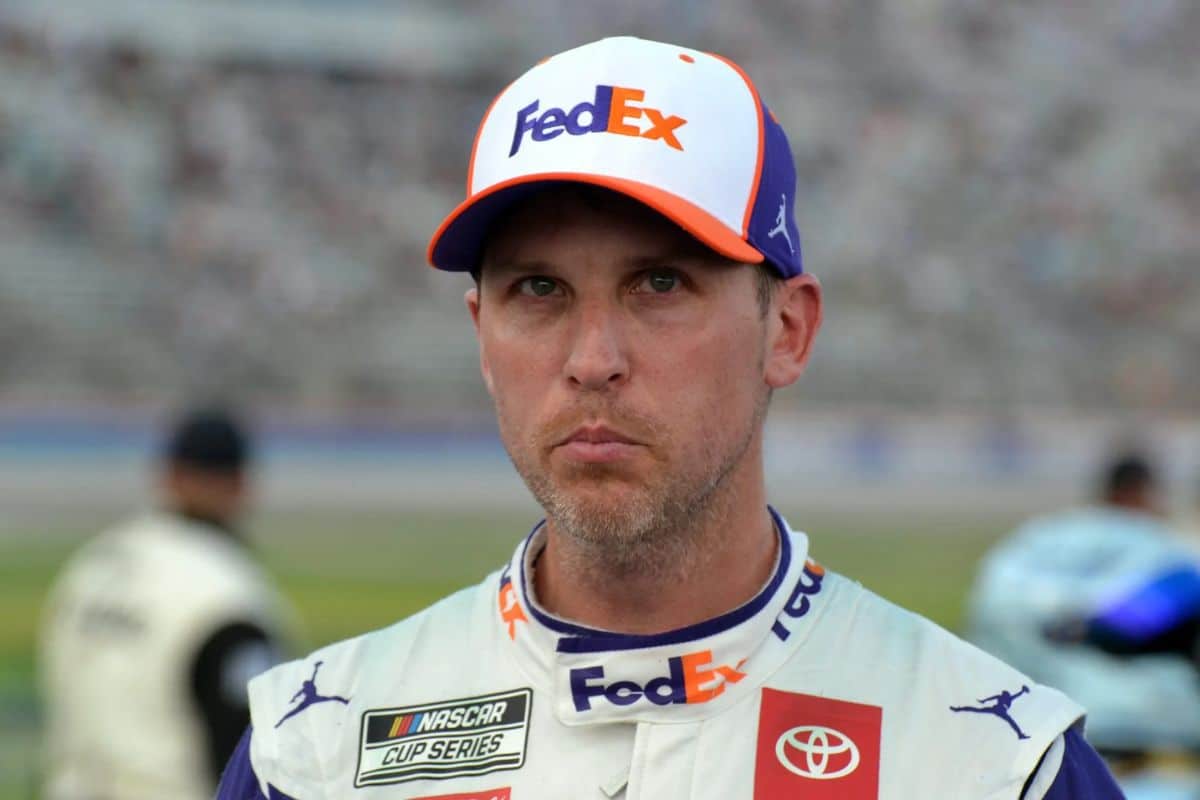Denny Hamlin Denies Team Conflict: In a recent statement, Denny Hamlin has denied any internal conflicts within NASCAR teams, shifting the focus instead to a critical analysis of the current charter system. Hamlin calls for heightened financial transparency and equitable revenue distribution, stressing that a unified team front is crucial for sustained growth. His remarks suggest a pressing need to modernize the charter approach, balancing tradition with innovation. As NASCAR navigates these complex dynamics, the questions surrounding the future structure and financial health of the sport become increasingly pertinent, inviting further exploration into Hamlin’s vision for an evolved motorsports landscape.
Key Highlights
- Denny Hamlin denies any internal conflict among teams regarding NASCAR’s charter system.
- Hamlin emphasizes the need for NASCAR to address teams’ unified demands for financial transparency and equitable revenue sharing.
- He critiques the current charter system for needing significant refinement to avoid stagnation and address modern motorsports demands.
- Hamlin calls for a collaborative approach among stakeholders to enhance financial stability and competitive equity.
- He highlights the importance of a predictable model to attract sponsors and ensure long-term viability for teams.
Current Status of the Charter Agreement
Despite being nearly halfway through the 2024 Cup Series season, the extension of the charter agreement between NASCAR and the teams remains unresolved. This protracted halt has generated considerable concern within the motorsports community, given the charter system’s critical role in securing the financial stability and competitive viability of participating teams.
Historically, the charter agreement has provided teams with a guaranteed entry into races, fostering an environment of predictability and long-term planning. However, the negotiations have hit a significant roadblock this season, with dissatisfaction simmering among team owners regarding NASCAR’s latest proposal.
An analysis of the current status reveals a fundamental misalignment in the objectives of NASCAR and the teams. NASCAR’s approach appears to be driven by a desire to maintain control and ensure the sport’s overall profitability. Conversely, the teams are demanding for terms that more fairly distribute financial gains and provide increased security for their investments.
This discord has been aggravated by NASCAR’s strategic tactics, which include a divide-and-rule approach aimed at fragmenting the collective stance of the teams. This strategy has only deepened the mistrust and frustration, leading to an increasingly contentious atmosphere.
The teams, unified in their demand for a fairer deal, have resisted these overtures, indicating a firm stance on obtaining more favorable terms. The prolonged stalemate raises critical questions about the future structure of the Cup Series and whether a sustainable compromise can be reached.
Team Alliance’s Unity and Demands
The Team Alliance’s strong unity highlights their shared resolve to secure permanent charters, addressing vital concerns over the sustainability and financial stability of the current NASCAR framework. This solidarity among teams emphasizes the collective recognition of the inherent risks posed by the existing charter system. Their unified stance seeks to mitigate these risks by demanding for a more stable and predictable model that guarantees long-term viability and equitable financial distribution.
Analyzing the motivations behind this alliance, it becomes clear that teams are driven by a need to safeguard significant investments. NASCAR teams invest substantial resources—financial and human—into their operations, and the current temporary charter agreements do not provide the security necessary to justify these investments. By pushing for permanent charters, teams aim to create a more reliable environment where they can plan and grow without the looming uncertainty of charter renewals.
Furthermore, this unified demand for permanent charters is not merely a defensive strategy but also a proactive measure to foster a sustainable business model within NASCAR. The teams argue that the current system’s instability undermines their ability to attract long-term sponsors, secure financial backing, and plan strategically. A permanent charter system would alleviate these concerns, enabling teams to focus on competitive performance and innovation.
Challenges and Negotiations
Managing the complexities of securing permanent charters, the current landscape of discussions between NASCAR teams and the organization reveals significant challenges that must be addressed to guarantee long-term stability and growth within the sport. NASCAR’s charter system, which rejects a traditional franchise model in favor of a purchase-based approach, mandates teams to invest in charters to secure guaranteed race day spots and a share of media revenue. This system, while providing some stability, introduces a host of logistical and financial hurdles for teams navigating an already competitive environment.
The France family’s ownership of NASCAR and their substantial control over the majority of racetracks adds complexity to these negotiations. Teams are demanding for a more predictable and sustainable economic structure, one that balances the interests of the organization and the competitors. The current charter system, though a step towards ensuring team viability, often leaves teams in a risky position, subject to market fluctuations and the availability of charters.
Negotiations are further complicated by the inherent disparities in revenue distribution and operational costs. Teams argue that a more equitable sharing of media revenue and other financial resources is vital for fostering a competitive and thriving NASCAR ecosystem. Without a franchise model, which typically offers more predictable revenue streams and operational support, teams must go through a fragmented financial landscape that can diminish long-term planning and investment.
Addressing these challenges requires a concerted effort from both NASCAR’s leadership and the teams, fostering a collaborative environment where the mutual goal is the enduring success and growth of the sport. Only through transparent and fair discussions can the sport secure a sustainable future for all stakeholders involved.
Perspectives from Denny Hamlin
Denny Hamlin, a seasoned NASCAR driver and team owner, emphasizes the crucial need for NASCAR to pay attention to the unified demands of teams, particularly as the sport navigates the complexities of a proposed seven-year charter extension. Hamlin’s experience in the sport lends credence to his call for a more harmonious alignment between the governing body and the teams, who have been vocal about their needs for the past two years.
“NASCAR can cut a different deal with all different teams. That’s one of the provisions that they’ve got. It could happen for sure, but again, I think the teams are pretty aligned on what their needs are. It’s been the same four things that we’ve asked for two years now, and we haven’t got any movement on any of them.” – (hamlin)
Hamlin highlights that while individual negotiations are within each team’s right, the core issues they are demanding for remain consistent and collective. This united front is a vital aspect that Hamlin believes NASCAR must recognize and address. The teams’ demands span from financial transparency and equitable revenue sharing to improved operational support, all aimed at ensuring the long-term sustainability and competitiveness of the sport.
“I think it’s okay if teams want to do their own thing and say that this is good enough for them. I think everyone has those rights to do that and we’ve seen that happen for many, many decades. But I think the teams are more aligned in the fact that these are the key issues for us that need to be addressed.” – (hamlin)
According to Hamlin, the current charter system, which grants teams a stake in the sport’s revenue, needs significant refinement. He argues that the proposed extension should not merely be a temporary fix but a strategic overhaul that meets the evolving demands of modern motorsports. Hamlin’s critique of the charter approach is rooted in his belief that without substantial progress, the sport risks stagnation.
Future of Teams in NASCAR
As NASCAR navigates the complexities of charter agreements, the future of its teams depends on the ability to foster a collaborative environment that addresses financial stability and competitive equity. Central to this discussion is the recognition that charters, while providing a significant level of stability, do not inherently shield teams from the volatile nature of motor racing. Financial challenges and the need for consistent performance remain ever-present obstacles.
“When you look at the number of Chartered teams that were part of the previous agreement versus now, there’s only a handful that are still here that were here during that 10 years ago moment. So this is a very key moment in our sport. Are we going to lock arms and do this thing together and grow this thing together or not?” – (hamlin)
Denny Hamlin’s critique highlights a critical concern: the charter system’s limitations in guaranteeing long-term security for teams. The charter’s function as a form of equity and a means to regulate team entry does not fully mitigate the inherent risks associated with the sport. This reality necessitates a more refined approach, one that ensures financial stability while fostering a competitive balance.
Collaboration between NASCAR and its teams is vital. Key stakeholders, including powerhouses like Joe Gibbs Racing, Hendrick Motorsports, Team Penske, and Richard Childress Racing, play essential roles in shaping the future landscape. Their involvement in negotiations emphasizes the need for a system that benefits all parties, ensuring mutual growth and sustainability.
The challenge lies in creating a framework that balances the interests of established teams and new entrants, promoting a healthy competitive environment. Financial models must evolve to address the rising costs of participation, while prize distributions and sponsorship opportunities need reevaluation to ensure fair support across the board.
News in Brief: Denny Hamlin Denies Team Conflict
The discourse surrounding the NASCAR charter system reveals significant complexities in balancing financial transparency and equitable revenue distribution among teams. Denny Hamlin’s critique highlights the importance of a collaborative, forward-thinking approach to guarantee the charter system evolves in alignment with modern motorsports demands.
Addressing these unified concerns is crucial for fostering sustained success and cohesion within NASCAR, ultimately contributing to a more robust and transparent operational framework for the sport’s future.
ALSO READ: Denny Hamlin Admits Error in Clash With Kyle Larson at Iowa



